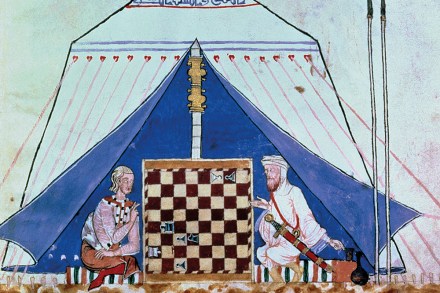Centuries of cross-currents between Christianity and Islam
Among the many colourful and captivating characters who people Elizabeth Drayson’s authoritative, fascinating account of 1,300 years of shared Islamic and European history is Abbas ibn Firnas, born around 810 in what is now southern Spain but was then the Muslim-ruled emirate of Cordoba. An innovative scientist who is remembered as the father of aeronautics and optics, he attempted an Icarus-like experiment in early flight which did not go well. Luckily, he survived to conduct important work on corrective reading glasses. The there is Adelard of Bath, born around 270 years later in the south-west English city. Also a scientist, he made long journeys throughout the Middle East and the


